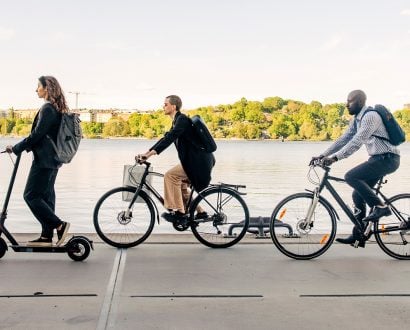COP28 Day 13, 12 December
Summit goes into overtime
As COP28 talks in Dubai drew to an official close, the summit headed into overtime with the final deal on the future of the climate yet to be settled.
A new draft is expected to be brought to the table on Wednesday after the proposed text released yesterday by COP28 President Sultan Ahmed Al Jaber, drew widespread criticism for its failure to mention the phase-out of fossil fuels.
Australia, Canada, Chile, the European Union, Norway and the United States are among those who have criticized the draft. However, Saudi Arabia, accused of blocking a call to phase out fossil fuels, has described it as a “good base” to work from.
Meanwhile, the early departure of the United Kingdom’s Climate Change Minister, Graham Stuart, from the summit this morning riled climate campaigners and politicians.
“This is an outrageous dereliction of leadership at the most critical point during this conference. This is the moment when we need to see bold political commitments to unlock the gridlock on the text,” Greenpeace’s Rebecca Newsom told The Guardian.
As further evidence of the need for action, the Copernicus Atmosphere Monitoring Service revealed that emissions from the Canadian wildfires in 2023 were the highest ever recorded anywhere in the world.
The fires engulfed 18 million hectares, discharging the equivalent of 1,761 million metric tons of carbon dioxide – close to five times the average of the past 20 years.
In other news, the loss and damage fund that was unveiled at the start of the summit has received close to US$800 million in pledges across the course of the summit. But there’s still a long way to go for the fund to provide success.
“Initial pledges are very, very low compared to need,” said The Loss and Damage Collaboration’s Julie-Anne Richards.
COP28 Day 12, 11 December
Draft climate deal misses the mark
The response to the draft climate deal unveiled on day 12 of COP28 in Dubai has been overwhelmingly negative, with it requiring only a ‘reduction’ of fossil fuels rather than a ‘phase-out’.
New draft text on the COP28 Global Stocktake was released today but pressure is mounting for a new draft, as former United States Vice President and climate activist Al Gore said that the conference is “on the verge of complete failure”.
He wrote on X: “This obsequious draft reads as if OPEC dictated it word for word. It is deeply offensive to all who have taken this process seriously.”
Hindou Oumarou Ibrahim from the Chad delegation agreed the language around fossil fuels “is not good enough” and the European Union’s Commissioner for Climate Action, Wopke Hoekstra, described it as “disappointing”.
Climate activists also criticized its lack of clarity and purpose. David Waskow, Director of the World Resources Institute, said: “This text doesn’t send the clear signals that are needed to avert the climate crisis.”
Simon Evans of Carbon Brief noted that incredibly few of the verbs used in the draft text actually called for action.
In other news, Brazil has been formally named as the host of COP30, with the 2025 talks to be held in the city of Belém. The setting of the Amazon rainforest is expected to push nature up the summit’s agenda.
The morning also saw Simon Stiell, the Executive Secretary of the United Nations Framework Convention on Climate Change, tell journalists: “‘I win, you lose’ is a recipe for collective failure. Ultimately it is eight billion people’s security that is at stake.”
COP28 Day 11, 10 December
“The window is closing”
Following on from his call to “get this job done” on Friday, COP28 President Sultan Ahmed Al Jaber has urged countries to work faster.
“The window is closing to close the gaps,” he said on day 11 of the summit in Dubai, adding that there were “still more areas of divergence than agreement”.
As the summit heads into its final stages, pressure is mounting over the possible agreement to phase out fossil fuels, which many have been hoping would emerge from the two-week talks.
Saudi Arabia and its allies were accused of “holding talks hostage” by Mary Robinson, Chair of The Elders, as she insisted “nations obstructing a liveable future must abandon their subterfuge”.
But she also blamed the United States, China, the European Union and India for hiding in the shadows as she urged leaders not to leave the summit without a phase-out agreement.
Jean Su, Energy Justice Director at the Center for Biological Diversity, called on the United States specifically to “shift into high gear” during the final days of talks.
“The US has climate diplomacy heft like no other, and unmatched responsibility as the world’s largest oil and gas producer and historical emitter,” she said.
Meanwhile, the focus turned to food, agriculture and water, with the Food and Agriculture Organization (FAO) releasing a ‘Global Roadmap for Agriculture’ report this morning.
The United Nations emphasized that reforming global food systems is a crucial step in preventing excessive temperature increases worldwide. The initial phase of a road map for food and agriculture was introduced to align to limit the temperature rise to 1.5 degrees Celsius.
COP28 Day 10, 9 December
Azerbaijan to host COP29
Confirmation of Azerbaijan as the host of COP29 has put an end to a tense deadlock over the decision but sparked outrage among climate activists.
On day 10 of COP28 in Dubai, the United Nation’s requirement that an Eastern Europe country would take over the rotating presidency was finally satisfied, after a joint statement that agreed Armenia would withdraw its bid and support Azerbaijan’s.
“The Republic of Armenia and the Republic of Azerbaijan share the view that there is a historical chance to achieve a long-awaited peace in the region,” it said.
However, the new host state’s reliance on fossil fuels makes it another controversial choice, with oil and gas production accounting for nearly half of its gross domestic product, according to the United States government’s International Trade Administration.
There were also angry reactions to reports that Haitham Al Ghais, the Secretary General of the Organization of the Petroleum Exporting Countries (OPEC), had written a letter to OPEC+ members to reject language on the phase-out of fossil fuels.
Mohamed Adow, of the non-governmental organization and think tank Power Shift Africa, described it as “shameful”.
“Climate change is killing poor people around the globe and these petrostates don’t want COP28 to phase out fossil fuels because it will hurt their short-term profits,” he said.
Meanwhile, hundreds of delegates marched to demand climate justice and an immediate ceasefire in Gaza, chanting: “Climate justice is a right not just for the rich and white.”
COP28 Day 9, 8 December
“Let’s please get this job done”
After yesterday’s rest day, the summit is back in full swing in Dubai. Youth and children are the focus of today’s talks.
Opening plenary discussions this morning, COP28 President Sultan Ahmed Al Jaber told countries it was time to “come out of your comfort zone”.
“Let’s please get this job done,” he said.
Among the early news is Australia’s commitment of US$100 million in climate finance for a newly formed Pacific Resilience Facility. The country, however, has yet to pledge to the new loss and damage fund.
The summit president has turned to Canada to help create language around the phase-out of fossil fuels. This comes after the North American country’s Environment Minister, Steven Guilbeault, announced on Thursday that from 2030 onwards, it would require its fossil fuel industry to reduce emissions up to 38 percent compared to 2019 levels.
He told reporters that he was ‘confident’ that the summit would end with some common language on fossil fuels. “Will it be everything we want it to be? We’ll have to see. Even if it’s not as ambitious as some would want, it would still be a historic moment,” Guilbeault is reported to have said in The Guardian.
“I’ve been coming to COP since COP1 in 1995 in Berlin. It would be the first time in almost 30 years of international negotiations that we can agree on language regarding fossil fuels,” Guilbeault said.
COP28 Day 8, 7 December
Rest day in Dubai
Today has been a rest day for the more than 80,000 delegates in Dubai with no official meetings taking place.
Now more than halfway through the summit, the big question remains: will an agreement to phase out fossil fuels be reached by the final day? More than 80 countries are advocating for a more comprehensive agreement to gradually eliminate the use of fossil fuels.
“The ‘phase-out’ is a tool to reach the goal. And the goal is an energy system that has no emissions,” Norway’s Minister of Foreign Affairs Espen Barth Eide said to Reuters at the summit.
Russia, Saudi Arabia and China are the three main countries opposing the fossil fuel phase-out, diplomats have told the press agency.
Speaking this morning, United Arab Emirates Energy Minister Suhail Mohamed Al Mazrouei said the focus should be on phasing out coal. The oil-rich Arab state seemed lukewarm about the idea of a complete phase-out of fossil fuels.
“I don’t think we should talk about [fossil fuel] phase-out because the technologies are also improving. What if in the future we have a technology that omits all of the CO2 emissions from fossil fuel and makes it clean, as clean as any other fuel? Why should we fight it before we have the alternative?” he said.
In other news from the summit, Moldova has emerged as a candidate to host the COP29 summit next year, which is set to take place in Eastern Europe.
COP28 Day 7, 6 December
United Nations Climate Chief issues call to action
As COP28 reached its midpoint, United Nations Climate Chief Simon Stiell has issued a stern warning to countries negotiating at the summit, urging them to replace ‘posturing’ with decisive action.
“We need highest ambition, not point scoring or lowest common denominator politics,” he insisted.
“There are many options that are on the table right now, which speak to the phasing out of fossil fuels. It is for parties to unpick that, but come up with a very clear statement that signals the terminal decline of the fossil fuel era as we know it.”
Attention turned to cities and transport on day seven of the climate talks, with leaders urged to back the Joint Outcome Statement on Urbanization and Climate Change.
The 10-point plan, supported by 40 housing and development ministers, seeks to deliver climate-friendly cities that protect their residents from the impacts of climate change.
The morning saw the release of the ‘Global Tipping Points Report’, which showed that five crucial climate tipping points already risk being crossed. These findings came as Copernicus Climate Change Service confirmed 2023 as the hottest year in recorded history.
November recorded an average daily temperature of 14.22 degrees Celsius, exceeding 2020’s record by 0.32 degrees. It was the sixth consecutive month to break records.
COP28 Day 6, 5 December
Fossil fuel lobbyists in high attendance
There was outcry once again on day six of COP28 in Dubai, after it emerged that the number of delegates who are linked to fossil fuel producers has quadrupled since last year.
Analysis by a coalition of green groups found that around 2,400 people connected to the coal, oil and gas industries – a record number – were registered for the climate conference. This is more than the total number of representatives from the 10 countries most vulnerable to climate change.
The news was met with dismay, with Climate Action Network International commenting on social media platform X (formally Twitter), “You don’t bring arsonists to a firefighting convention,” while Tzeporah Berman, Chair of the Fossil Fuel Non-Proliferation Treaty, said: “Stop negotiating with them and start regulating them.”
Spain’s environment minister called for fossil fuel companies claiming to be serious about solving the climate crisis to back their words with action, by contributing to funds for poorer and more vulnerable countries impacted by climate change.
“Private corporates should be stepping into a different development model in vulnerable countries,” Teresa Ribera, a co-leader of the EU delegation to the summit, insisted.
The day also saw the launch of a new report from Greenpeace Netherlands, which showed that 2022 greenhouse gas emissions from Europe’s nine major oil and gas companies could cause at least 360,000 temperature-related premature deaths by the end of the century, with the true climate death toll likely to be much higher.
“Phasing out fossil fuels is a matter of life and death, so governments need to act now to ban new fossil fuel projects and force fossil fuel companies to rapidly cut their emissions,” Lisa Göldner from Greenpeace’s Fossil Free Revolution campaign said.
Meanwhile, a different report by the Global Carbon Project revealed that the world is on track to burn more coal, oil and gas in 2023 than it did last year, with global carbon emissions set to reach record levels once again.
The morning saw the publication of the latest draft of the negotiating text on the Global Stocktake, a ‘report card’ of countries’ progress toward the emissions cuts pledged in the Paris Agreement, which confirmed “an orderly and just phase-out of fossil fuels” was being considered.
However, agriculture and food were left off, prompting groups, including WWF, the Food and Land Use Coalition and the Environmental Defense Fund to call for their inclusion.
COP28 Day 5, 4 December
Summit President Al Jaber responds to criticism
Summit president Sultan Ahmed Al Jaber has defended his position on day five of COP28 in Dubai, following the revelation that he had questioned the science behind the phase-out of fossil fuels in the lead-up to the conference, insisting his comments were misinterpreted.
He took to the podium as headlines continued to be dominated by the exclusive in The Guardian yesterday, and scientists voiced their astonishment at his comments.
“I honestly think there is some confusion out there, and misrepresentation. I am quite surprised with the constant and repeated attempts to undermine the work of the COP28 presidency,” he said. “I have said over and over that the phase-down and the phase-out of fossil fuel is inevitable.”
Net Zero Tracker’s timely report released this morning reveals that the majority of countries don’t yet have a phase-out plan for fossil fuels.
On a day dubbed ‘Finance Day’, the United Kingdom, France, the World Bank and the European Investment Bank were among the countries to agree to include more climate-resilient debt clauses in their lending. These will provide breathing space for vulnerable countries affected by climate disasters to pause debt repayments as they recover.
Gender was also on the agenda with the unveiling of a new ‘Gender-Responsive Just Transitions & Climate Action Partnership’, which was backed by more than 60 parties. The three-year package of measures aims to tackle the disproportionate impact of climate-related job losses on women.
Meanwhile, more than 120 countries have committed to a ‘Climate and Health Declaration’. Organizers have called it a “breakthrough moment for health”, accelerating “the development of climate-resilient, sustainable and equitable health systems”.
COP28 Day 4, 3 December
Health at the top of the agenda
Day four of COP28 in Dubai was overshadowed by the revelation that the summit’s president, Sultan Ahmed Al Jaber, had questioned the need to phase out fossil fuels shortly before the event kicked off.
Al Jaber, who is also CEO of United Arab Emirates’ state oil company Adnoc, reportedly said that there was “no science” to support that the phase-out of fossil fuels was necessary to stay below 1.5 degrees Celcius, and said such a stance could “take the world back into caves”, according to The Guardian.
Meanwhile, a new report launched at the event, ‘10 New Insights in Climate Science 2023/2024’, stressed that the phasing out of fossil fuels is, in fact, required to keep global heating below the Paris Accord’s temperature targets. It said COP28 must “take unambiguous steps toward clear commitments for a managed phase-out of all fossil fuels”.
Billed as the event’s ‘Health Day’, day four also saw the release of a study, which warned that extreme weather events are placing one-in-12 hospitals worldwide at risk of total or partial shutdown without a rapid phase-out of fossil fuels.
The Cross Dependency Initiative report showed that a total of 16,245 hospitals, double the current tally, would be at high risk by the end of the century without significant change.
New data from the Climate TRACE project confirmed that electricity generation in China and India, along with oil and gas production in the United States, account for the biggest increases in global greenhouse gas emissions since 2015. The research also found that countries and companies are failing to report their emissions accurately, despite obligations to do so under the Paris Accord.
Elsewhere at the summit, Australia became one of the countries to back the pledge to triple global energy capacity by 2050 in an announcement welcomed by the international community. And the owners of the Cirebon-1 coal-fired power plant are to close it seven years earlier than planned in a provisional deal brokered by Indonesia and the Asian Development Bank.
COP28 Day 3, 2 December
A new energy pledge
A new energy pledge has brought together promises from at least 117 countries to treble renewable energy use by 2030, on the third day of COP28.
Those countries expect the move to help remove fossil fuels from the world’s energy system by 2050 at the latest.
Earlier in the day, 22 countries launched a declaration to triple nuclear energy capacity by 2050 to meet net zero targets.
“We are not making the argument to anybody that this is absolutely going to be a sweeping alternative to every other energy source,” United States climate envoy John Kerry said at the conference. “But we know because the science and the reality of facts and evidence tell us that you can’t get to net zero 2050 without some nuclear.”
The United States also committed to phasing out its coal-fired power plants, joining the Powering Past Coal Alliance. The nation currently has the third most coal-burning power stations in the world, with coal considered the dirtiest fossil fuel – accounting for 40 percent of fossil fuel emissions.
However, the apparent deadline of 2035 is five years after the 2030 date seen as necessary to keep global heating below 1.5 degrees Celsius.
Methane was on the agenda, with the United States unveiling new regulations to cut methane emissions from its oil and gas industry by an estimated 80 percent by 2038.
In her address, United States Vice President Kamala Harris confirmed a US$3 billion contribution to the Green Climate Fund, the largest international fund for climate action, which was a substantial increase on the US$2 billion the country has previously contributed to the fund.
Meanwhile, 50 oil and gas companies pledged to stop adding to planet-warming gases by 2050 – a commitment met with considerable criticism as it only covers emissions from production and not the burning of fossil fuels.
And Colombian President Gustavo Petro announced that his country has formally joined a group of nations calling for a fossil fuel non-proliferation treaty, despite its significant oil, gas and coal industries.
COP28 Day 2, 1 December
World leaders take to the stage
Food and agriculture dominated the second day of COP28 in Dubai, as more than 130 countries signed up to a declaration on building sustainable food systems.
It represents the first time food and agriculture have been recognized as key factors in global warming at a COP summit. Food currently contributes a third of the warming gases that are pushing up global temperatures.
Those that have signed up to ‘The Emirates Declaration on Sustainable Agriculture, Resilient Food Systems and Climate Action’ represent 5.7 billion people and 75 percent of all emissions from global food production and consumption, according to COP28 host nation the United Arab Emirates. These nations will now include food emissions in their plans to tackle climate change.
“The declaration sends a powerful signal to the nations of the world that we can only keep the 1.5 degree goal in sight if we act fast to shift the global food system in the direction of greater sustainability and resilience,” said Edward Davey, Head of Research Group at the World Resources Institute UK.
Meanwhile, United Arab Emirates President Mohammed bin Zayed Al Nahyan announced a US$30 billion fund for global climate solutions and the United Kingdom’s King Charles III made his first address on climate change since becoming king in 2022.
He told the audience: “The Earth does not belong to us, we belong to the Earth,” and expressed his hopes that this COP is “a critical turning point toward genuine transformational action”.
United Nations Secretary-General António Guterres was among the other world leaders who spoke today, warning we “cannot save a burning planet with a fire hose of fossil fuels”.
More than US$400 million has already been pledged to the loss and damage startup fund announced yesterday, including US$245 million from the European Union.
COP28 Day 1, 30 November
Landmark deal reached on first day of summit
The first day of COP28 saw a headline-grabbing announcement with two major players making significant strides to help solve the world’s climate crisis.
Host country the United Arab Emirates and Germany both committed US$100 million to a loss and damage startup fund. The fund will help counter the rising costs associated with extreme weather and slowly unfolding climate disaster, acting as a major boost for poorer and more vulnerable countries.
Both nations called on others to contribute.
Earlier in the day, Sultan Ahmed Al Jaber officially opened the proceedings, saying talks were underway with oil and gas companies, with many adopting net zero targets for 2050. “But it is not enough, and I know that they can do more,” he said.
Such measures only cover emissions from producing oil and gas, with no commitment to slash actual production of the fuels. Controversially, Al Jaber is CEO of ADNOC, the United Arab Emirates’ state oil company, which has plans to significantly expand its own output of oil and gas.
Meanwhile, this year will be the hottest year ever recorded, according to the World Meteorological Organization’s ‘State of the Climate’ report, launched to coincide with COP28. The ongoing climb in carbon emissions from fossil fuel burning and the return of El Niño are behind the temperature increases, with 2024 expected to be another record year.
Speaking at the report’s launch, United Nations Secretary-General António Guterres declared: “We are living through climate collapse in real time”.
In the lead-up to the official opening ceremony, Guterres said that the conference should target a language of total ‘phaseout’ of fossil fuels. “I think it would be a pity if we would stay in a vague and non-committal ‘phase-down’ whose real meaning would not be obvious for anybody,” he said.
He also argued that, despite the latest United Nations Environment Programme report, the 1.5 degree goal “is not dead”.
“Stop dawdling and start doing. Most governments are still strolling when they need to be running,” said United Nations Climate Chief Simon Stiell ahead of this week’s 28th annual United Nations Climate Change Conference of Parties (COP).
Stiell’s words couldn’t be more stark as yet another record-shattering year for global temperatures draws to an end, with experts warning of an impending global catastrophe if, as seems inevitable, carbon emissions targets are missed.
This year, COP28 takes place from 30 November until 12 December and welcomes 70,000 attendees, including 167 political leaders, monarchs, activists, diplomats, business representatives and lobbyists from 198 countries around the world.
They’re gathered in Dubai in the United Arab Emirates – one of the world’s biggest oil producers but, ironically, also particularly vulnerable to rising sea levels.
At the third COP meeting in 1997, the Kyoto Protocol was proudly unveiled as salvation for an overheating planet, but at the time, few major polluters had signed up, so it was doomed to fail from the start.
Then, in 2015, hopes were pinned on its successor, the Paris Accord, a treaty aimed at limiting global warming this century to below 1.5 degrees Celsius above pre-industrial levels.
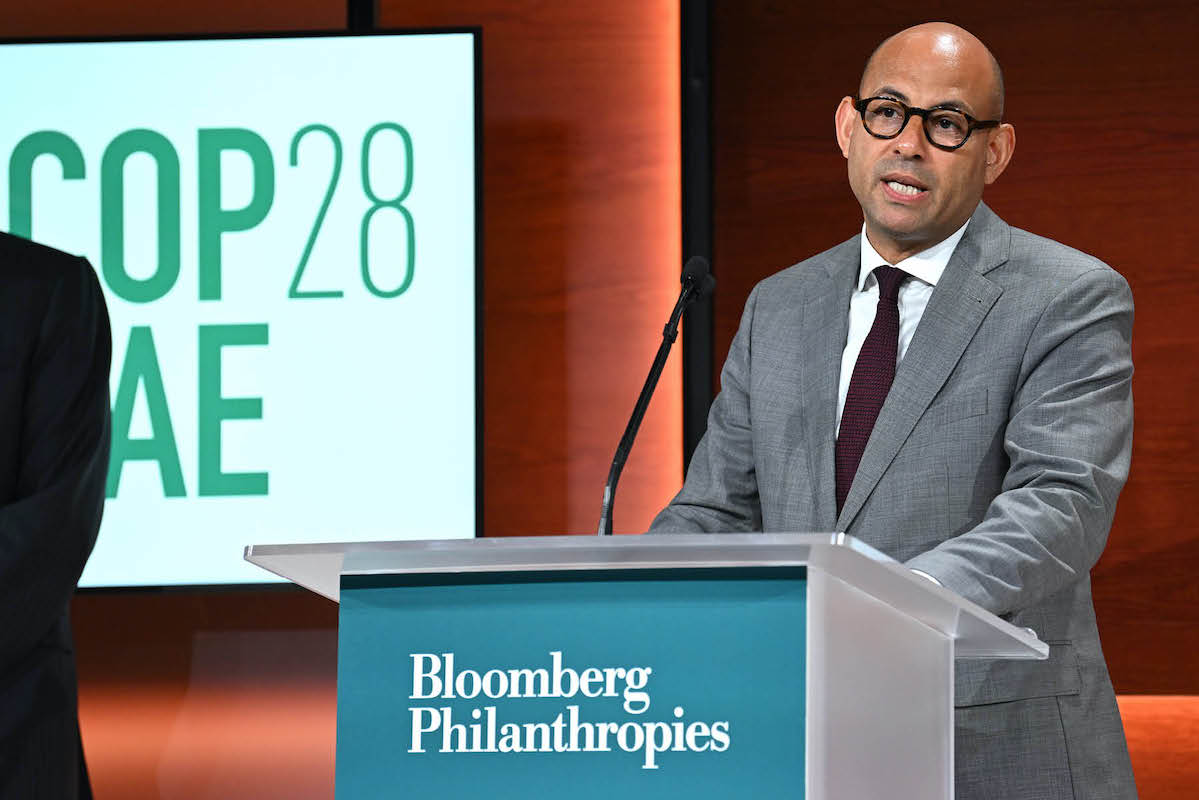
Dire warnings for the planet
At each year’s COP, delegates are updated on progress, or lack thereof, of the world meeting these targets. This year’s COP has already been overshadowed by the latest United Nations Environment Programme report, which makes for grim reading.
It concludes that the world’s 1.5 degrees Celsius target is effectively dead in the water and that even trying for a two degrees Celsius rise would require cutting predicted 2030 emissions by a whopping 28 percent.
This year’s COP has already been overshadowed by the latest United Nations Environment Programme report, which makes for grim reading.
Climate scientists now believe a new era of ‘global boiling’ means a three-degree Celsius increase is more likely. In that scenario, sea levels would rise by more than half a meter in just a few decades, potentially displacing more than 800 million people.
The fact that the likes of King Charles are glad-handing at COP28 shows just how high the stakes have become. They won’t be joined, however, by the presidents of the world’s two biggest polluters, the United States and China, who have sent representatives in their place.
A host of concerns
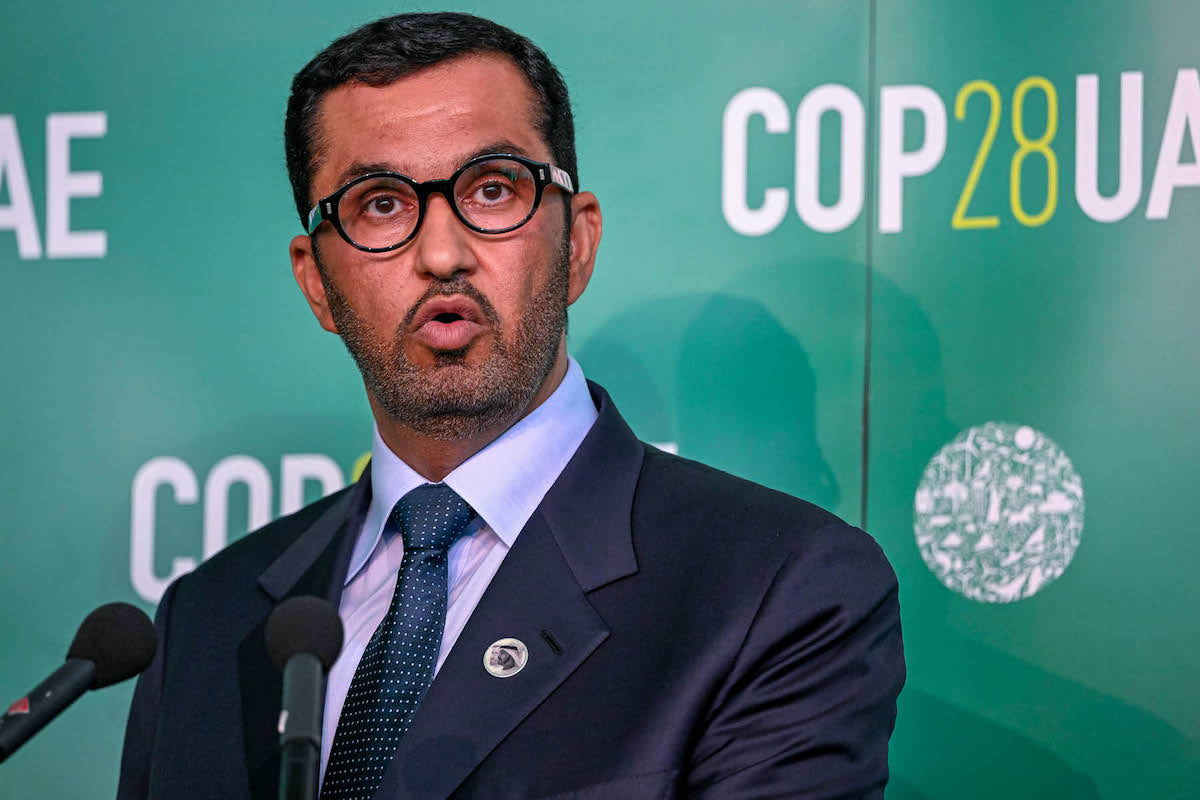
The choice of host nation for the COP28, which has been widely criticized, has not helped expectations for the event. Nor has the appointment of Sultan Ahmed Al Jaber, CEO of the Abu Dhabi National Oil Company (ADNOC), as President-Designate – especially as his firm intends to expand its production of fossil fuels.
Among those protesting in the lead up to the event were the European Union, 130 United States lawmakers and Amnesty International.
Climate agitator Greta Thunberg described it as “completely ridiculous” while Kenyan climate justice campaigner Eric Njuguna despaired that it represented a “stab in the back for poor countries”.
“We cannot unplug the world from the current energy system before we build a new energy system.” – Sultan Ahmed Al Jaber
In his recent TED talk, American politician, businessman and environmentalist Al Gore lamented that fossil fuel interests “have brazenly seized control of the COP process”.
Al Jaber, meanwhile, argues that his poacher-turned-gamekeeper status makes him ideally placed to drive change from within. Unsurprisingly, he says the debate shouldn’t be just about banning oil.
“We cannot unplug the world from the current energy system before we build a new energy system,” he told TIME Magazine.
He has also been quick to point out that no former COP president has ever confronted the oil industry head-on until now. “Not having oil and gas and high-emitting industries on the same table is not the right thing to do,” he said.
“We need this integrated approach.”
Hidden agenda
However, a recent BBC report suggests the United Arab Emirates has different plans for such table talks, and no intention of unplugging the oil pipes anytime soon. Investigators uncovered proof that the country was actively exploiting its hosting duties to negotiate new oil and gas deals with 27 nations, an accusation United Arab Emirates delegates are yet to deny.
It’s estimated that even the patchy progress achieved since the Kyoto Protocol was introduced in 1997 has prevented a temperature rise of up to six degrees Celsius by 2100.
United Kingdom climate politics expert Professor Michael Jacobs described the revelation as “breathtakingly hypocritical”.
“In the very same meetings where it’s apparently trying to pursue [emissions reductions] it’s actually trying to do side deals, which will increase global emissions,” he said.
But despite cynicism about the hosts, and repeated failures to meet targets, the COP28 summit is still critical. It’s estimated that even the patchy progress achieved since the Kyoto Protocol was introduced in 1997 has prevented a temperature rise of up to six degrees Celsius by 2100.
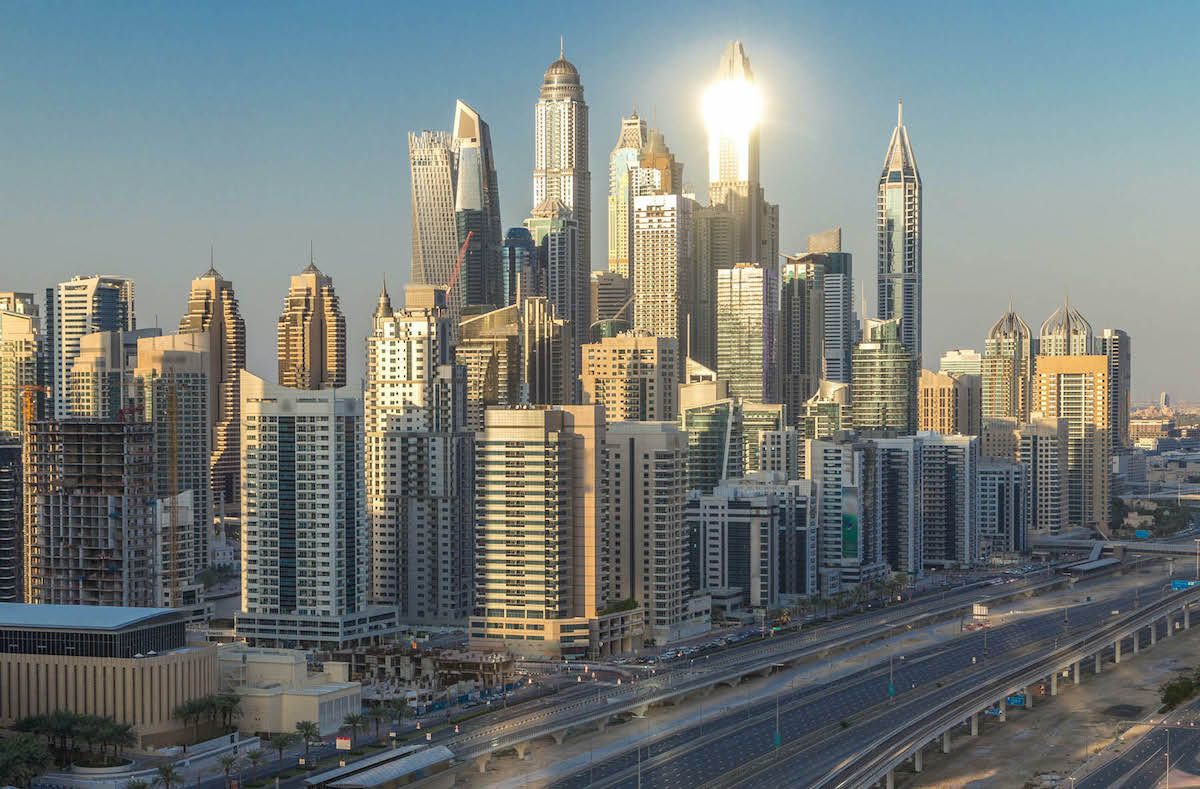
Al Jaber is certainly ambitious in his hopes for the summit. In a letter to delegates, he outlined four paradigm shifts he wanted COP28 to focus on:
• Fast-tracking energy transition and slashing emissions before 2030.
• Transforming climate finance by delivering on promises and setting the framework for a new deal on finance.
• Putting nature, people, lives and livelihoods at the heart of climate action.
• Mobilizing for the most inclusive COP ever.
A call to action
Conceding that the group had strayed “off-track”, he said a course correction would require three actions:
1. Identifying implementation gaps and rallying all parties for concrete steps to achieve the Paris Accord’s 1.5 degrees Celsius target.
2. New financial, political and technological resources to frame collaboration.
3. A call to action for how governments, businesses and individuals can play their part.

While critics point to the absence of detail, there’s also a sense that COP remains the world’s best chance to prevent the threatened catastrophe from becoming something even more devastating. The delegates may need to either invent a new word for whatever supersedes a ‘catastrophe’ or move on to using ‘apocalypse’ or ‘cataclysm’.
But, as Global Citizen’s Michael Sheldrick points out, just because COP is flawed, it doesn’t mean it should be written off.
“It’s hard to say where we’d be without a yearly push to jolt governments into action,” he said. “We wouldn’t see much national collective action without the attention COPs generate.”
No COP out
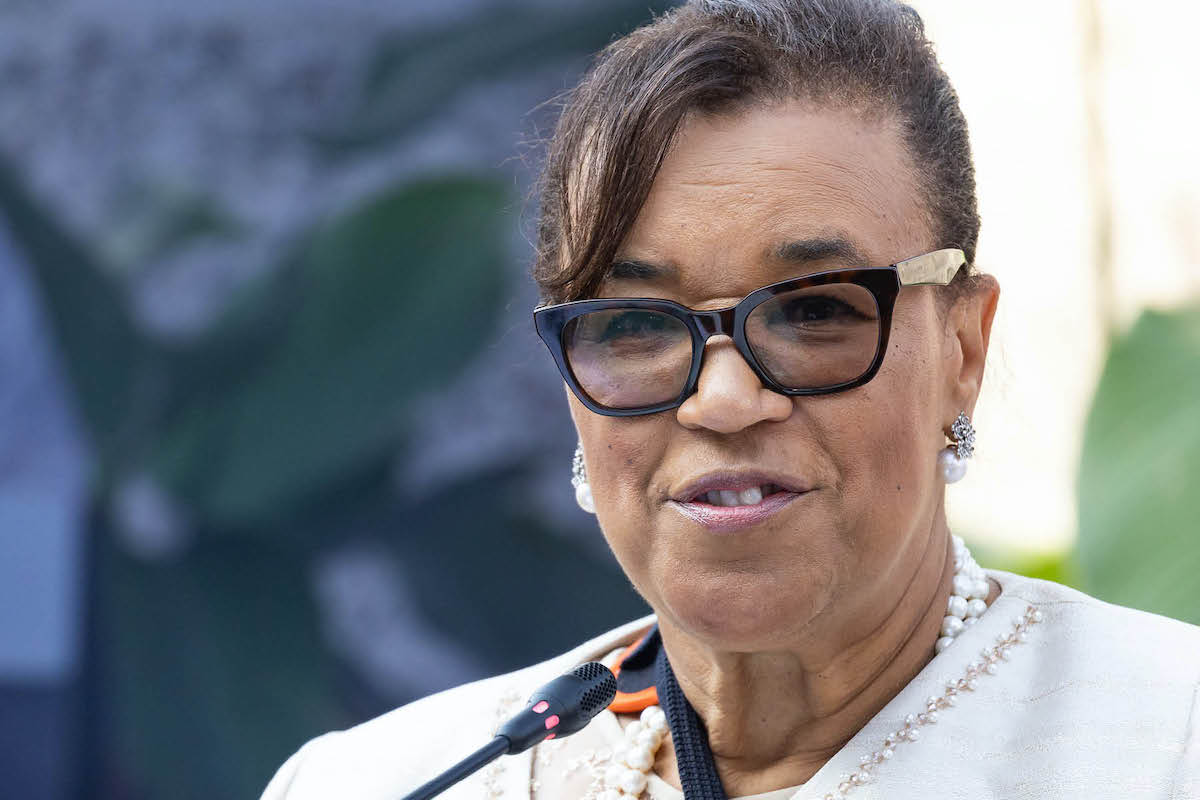
Commonwealth Secretary-General Patricia Scotland declared on the eve of COP28 that the time for excuses is now over.
“The worst predictions of climate change have become a daily reality. In the Commonwealth’s most vulnerable countries, fertile lands are turning to dust, wells are running dry, storms and floods are overwhelming communities and the ocean is rising,” she said.
“The health of us all and of our planet rests on a 1.5 degrees Celsius degree cap on global warming.”


